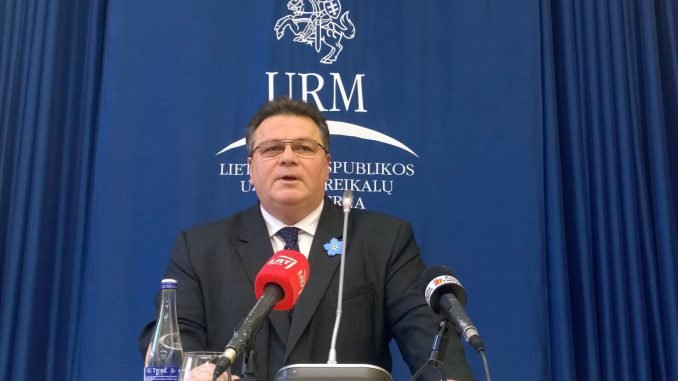
(Starting on 11 January, this article and others like it will only be available to Individual and Corporate subscribers)
Linkevičius said the European consensus on the sanctions had been affected by the conflict in Syria where France is now discussing air strikes against Islamic State with Russia.
“In this case, we need to see the whole picture; not just aggression and occupation [by Russia] in Ukraine, we need to see other regions, too, like what is happening in Syria. There are countries that would like to cooperate [with Russia] and press on the other side, to look for an optimal way,” Linkevičius told a press conference on Tuesday.
“We keep insisting that we must be consistent and that the ball is in fact in Russia’s side of the court right now. Russia, of all countries, would be interested in constructive cooperation, but there are signs from the Russian side that it is not willing to give up aggressive policies towards its neighbours. It does not want to renounce the antiquated policy of imposing its will on other countries, of using its so-called national interests to choke those countries’ freedom of choice. We cannot accept that as normal,” Minister Linkevičius said.
He noted that sanctions on Russian companies had been extended until the end of July, but the European Union will discuss sanctions on individuals in March.
“I must admit, there are all kinds of talk and suggestions, but we have agreed: sanctions on Russia depend on the progress on the Minsk agreements. So far, they have not been implemented. In fact, there have been some 20 shooting incidents in Donetsk Oblast, around an airport, over the last hours. One could hardly call that a truce. We are therefore monitoring the situation every day. If we stick to the principles we have set for ourselves, then sanctions must stay. But let me note that this will be a process,” the Lithuanian foreign minister said.
He added that decisions on sanctions for individuals will be made on a case-by-case basis. Currently, the EU’s blacklist includes 170 names.

Be the first to comment